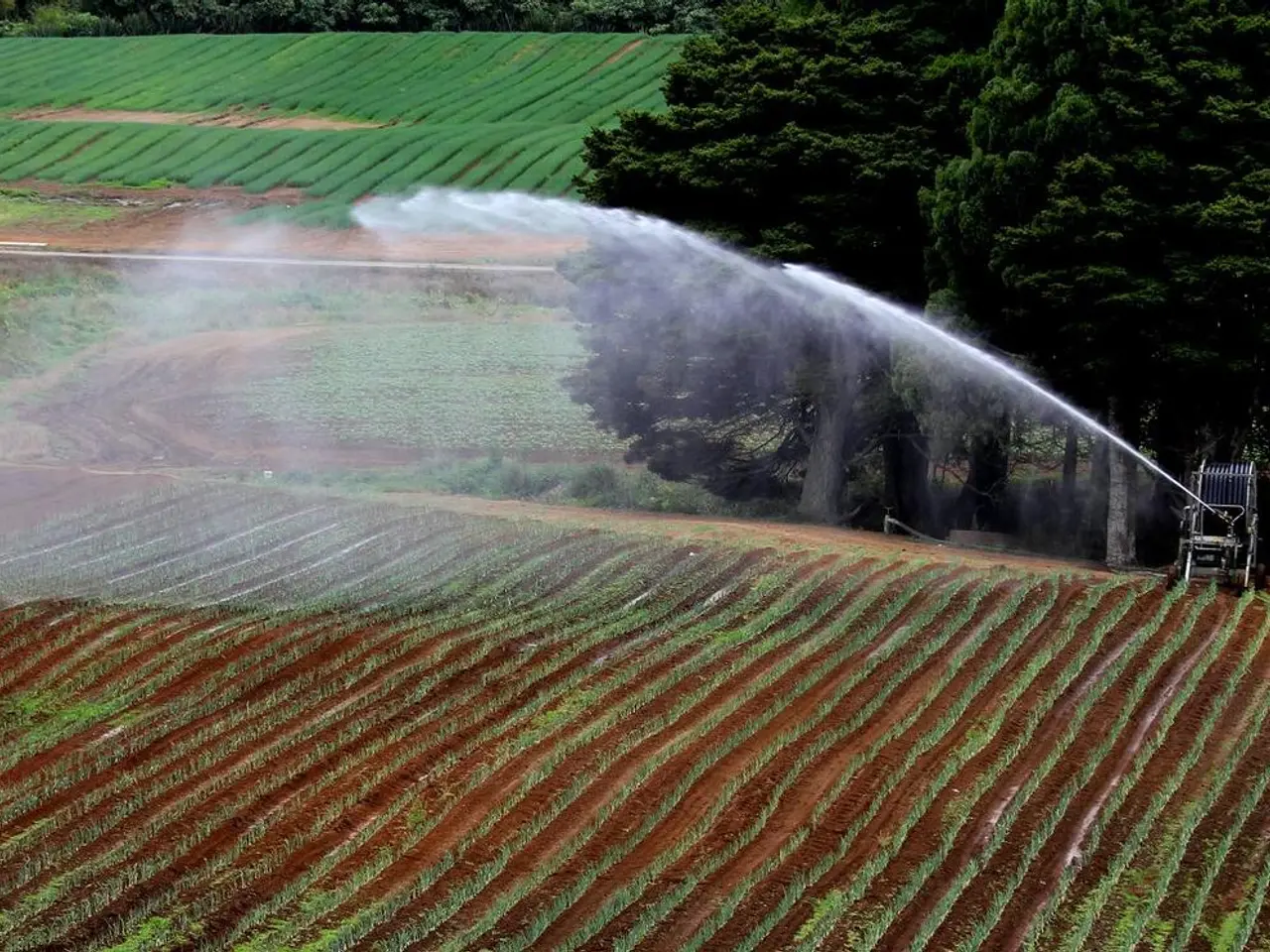Enhancing Mango Farm Watering Methods through Artificial Intelligence Technology
Mango farming, traditionally facing issues with water waste and manual labor, is undergoing a significant transformation thanks to the adoption of AI-based technologies. These innovative solutions are designed to make farming more sustainable, addressing concerns related to climate change and resource conservation, ensuring that mango farming can continue for future generations.
Revolutionizing Traditional Mango Farming Practices
One of the key areas where AI is making a difference is in precision irrigation. AI-driven systems use satellite imagery, drones, and ground sensors to monitor soil moisture and crop water requirements. This allows for precise and timely irrigation, reducing waste and optimizing water use.
Moreover, AI algorithms analyze real-time data from various sources to predict water needs, detect potential issues, and provide actionable insights for farmers to manage their fields effectively.
Another notable development is the implementation of Ultra High-Density Mango Plantation (UHDMP) methods, which incorporate modern irrigation techniques like drip irrigation to enhance agro-water productivity and reduce groundwater extraction. This method has shown significant yield increases and economic benefits in regions like the Barind area.
Key Benefits
The implementation of AI-based irrigation systems offers several advantages. Firstly, water efficiency is improved, with AI systems reducing water usage by up to 30%. This is particularly crucial for water-stressed areas facing the impacts of climate change.
Secondly, cost reduction is achieved by minimizing unnecessary water and fertilizer application. This not only helps farmers lower their operational costs but also contributes to environmental sustainability by reducing waste and emissions related to overuse of resources.
Thirdly, increased yield is a direct result of optimizing irrigation and fertilizer inputs, which helps maximize crop productivity and quality.
Future Developments
The future of AI in mango farming looks promising. Future systems may integrate more closely with other precision agriculture tools, such as disease detection platforms, to create comprehensive farm management systems.
AI could also play a larger role in predicting and managing pest and disease outbreaks, further enhancing crop resilience.
Lastly, efforts are being made to make AI-based irrigation systems more affordable and accessible to small-scale farmers, helping to spread these benefits across the agricultural sector.
In conclusion, AI-based irrigation systems are not only improving efficiency and productivity in mango farming but also positioning the industry for sustainable growth amidst climate change challenges. Soil moisture monitoring is a key feature of these systems, enabling farmers to monitor their mango farms remotely, eliminating the need for constant on-site presence. Integration with IoT-enabled devices and predictive analytics further enhances the system's automation and data gathering capabilities, offering customized solutions tailored to the size and type of the farm.
Artificial-intelligence-driven systems on mango farmland are set to revolutionize the field's irrigation processes, incorporating precision irrigation methods like satellite imagery, drones, and ground sensors to optimize water utilization, reduce waste, and enhance agro-water productivity.
The advancement of AI in mango farming may extend to the development of integrated farm management systems that combine AI-based irrigation with disease detection platforms, improving the overall efficiency and resilience of mango farming operations.




